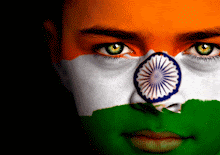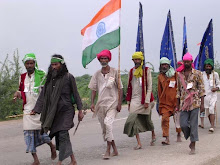What IS Indian Govt Is Doing For The Students In Australia?  Indian students, says those from his culture will often stay quiet about their troubles. "We don’t discuss things unless we are very proud of them," he says “And many students are ashamed.”
Indian students, says those from his culture will often stay quiet about their troubles. "We don’t discuss things unless we are very proud of them," he says “And many students are ashamed.”
 Indian students, says those from his culture will often stay quiet about their troubles. "We don’t discuss things unless we are very proud of them," he says “And many students are ashamed.”
Indian students, says those from his culture will often stay quiet about their troubles. "We don’t discuss things unless we are very proud of them," he says “And many students are ashamed.”MELBOURNE'S new underclass lives in substandard housing with often high rents. Increasingly, its members are the victims of violent, racial crime. By night, they work in menial jobs where exploitation by employers is common.
By day, they study. The number of Indian students in Melbourne has tripled in the past three years. It is believed there are now up to 18,000 at universities, colleges and TAFEs.
After Chinese students, they are the state's fastest-growing demographic.
Last year, international education was worth $2.9 billion to Victoria.
Many do well. They live well, have good part-time jobs, feel safe. They succeed. But many struggle.
"Students in trouble will not speak up," said Gautam Gupta, from the Federation of Indian Students of Australia, an ad hoc, unfunded body.
"We have had people suffering badly at work but they won't even tell us where they work. That is our culture.
"We don't discuss things unless we are very proud of them. And many students are ashamed."
The Age reported two weeks ago that the City of Melbourne, the State Government and Melbourne University were grappling with the explosion in city apartment blocks populated almost entirely by South-East Asian students, mostly from China.
Research warned that the $300-a-week apartments were fostering racial segregation and the students were cut off from the wider Melbourne community.
There is no such concern for Indian students, however. Most attend cheaper tertiary institutions and live out of the city, in the cheaper western and northern suburbs. They "suffer in silence", according to Mr Gupta.
A community meeting is being held today at Victoria University in St Albans to begin to sort through the issues.
It will be attended by the Multicultural Commission of Victoria and Victoria Police.
Superintendent Inghard Ehrenberg, of Victoria Police's community and cultural division, said there had been a rise in racially motivated crimes — including assaults and thefts with weapons — on Indian students, particularly at western and northern suburban railway stations. Many went unreported.
"We need to ensure they aren't targets just because they look different and speak different," he said. "They are a vulnerable group."
In one attack, two Indian students were each hit on the head with a bat at Tottenham station in March. The youths who attacked them taunted them racially.
"This happens a lot now," said Mr Gupta. "People say 'bin Laden' or something like that. They think we look odd.
"They see our brown skin and maybe some headgear, a turban, and they say things. What can we do? That is why we stick together."
Housing is the biggest problem many Indian students face. Several real estate agents in the western suburbs now refuse to rent properties to them.
"Agents tell me that they have closed their books on Indian students because they say, through their experiences, they can have 10 or 12 people living in the place," said Ok Chang, a student housing officer at Victoria University.
Rebecca Harrison, from the Tenants Union of Victoria, said there was a perception among property managers that Indian students were more likely to damage property or leave a mess.
"It's a strange, discriminatory prejudice," she said. "But this is what they are generally faced with."
The tenants' union campaigned last year against a company called Victoria Student Housing, run by former heads of the failed Melbourne University Student Union, Benjamin Cass and Darren Ray. The tenants' union claimed they were renting inferior properties to Indian students. The company is no longer operating.
Ms Chang said unlicensed boarding houses in central Footscray — in which a run-down house is partitioned into separate bed-sits, costing about $120 per week to rent — were now popular with Indian students. Rip-offs involving bond payments and evictions are common.
International students can work only 20 hours a week under the terms of their visa. Many Indian students in Melbourne are night cleaners in city office blocks, emptying rubbish, wiping kitchenettes, vacuuming floors and scrubbing toilets.
The Liquor, Hospitality and Miscellaneous Union estimates that up to 1000 Indians and Sri Lankans, plus some South Americans, are CBD night cleaners.
The union's assistant secretary, Jess Walsh, calls them an "invisible army".
"They go in when everyone else has left," she said.
"No one would know they even exist. Invisibility in the community is a very real issue here."
The students are paid reasonably well — about $18 an hour — but the union claims cleaning firms are increasingly exploiting staff by making them do the same amount of work in reduced hours, and not paying overtime.
Vijay, 22, from Mumbai, has cleaned office blocks for the entire four years of his studies. He would not give his full name, nor where he studied, for fear of jeopardising his degree, his visa or his job.
Vijay said it was common for him to be told to clean 60 kitchenettes in four hours, or an entire toilet block in 15 minutes.
"They don't give a damn about the person," he said. "For $18 an hour, you cannot have the blood of a cleaner."
Aditi Gupta, 20, from Ambala in the north of India, has worked from 11pm until 7am at a McDonald's in Collingwood for eight months.
She studies hospitality management at Carrick Institute of Education in Bourke Street.
Aditi has had her troubles, at work and at college. It was hard to fit in. But she said, in a way, it was good.
"Living in Melbourne," she said, "has taught me how to struggle through life."
Jai Hind
Rahul Vallamber






No comments:
Post a Comment